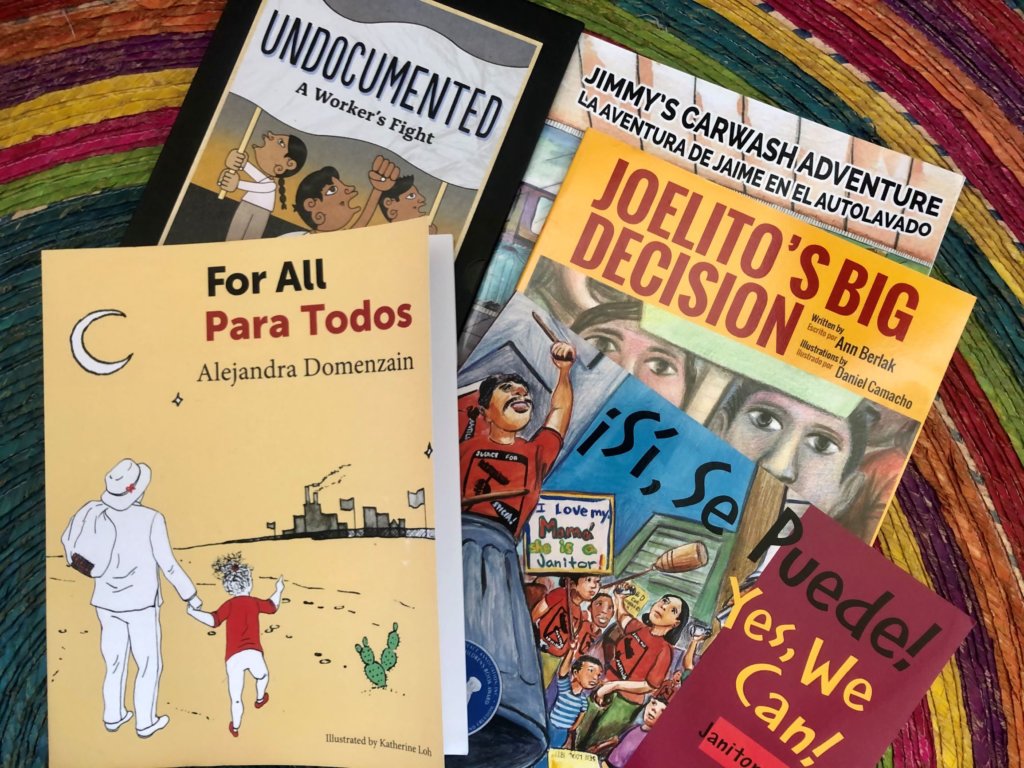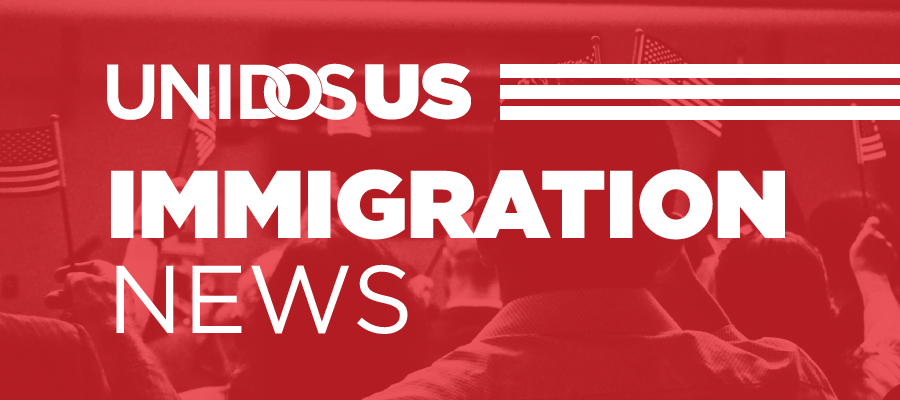This Week in Immigration Reform — Week Ending June 12
Week Ending June 12
This week in immigration: June is Immigrant Heritage Month; NCLR continues blog series on deferred action recipients; and our community celebrates the upcoming DACA anniversary.
Keep up with the latest from UnidosUS
Sign up for the weekly UnidosUS Action Network newsletter delivered every Thursday.
Administration remains confident and committed to Administrative Relief and reform during Immigrant Heritage Month: June is Immigrant Heritage Month, a celebration of immigrants’ stories of struggle and success. To mark the occasion, President Obama reiterated his support of the immigrant community and immigration reform. From his Weekly Address: “I’m going to keep doing everything I can to make our immigration system more just and more fair… Some folks are still fighting against these actions. I’m going to keep fighting for them. Because the law is on our side. It’s the right thing to do. And it will make America stronger.” Obama added, “Of course, we can’t just celebrate this heritage, we have to defend it – by fixing our broken immigration system.” See the White House blog featuring the story of Ginette Magana, whose father came from Mexico and whose mother was born to immigrants in Texas.
As we celebrate America’s rich history of immigration, the Texas court case challenging a program to help millions of immigrant families is still pending. The Obama Administration remains confident that the court will decide in its favor. A Washington Post article quoted Department of Homeland Security Secretary Jeh Johnson: “I believe we will prevail…our lawyers at the Department of Justice say we have the legal authority to do this.” He added that deferred action is “the right thing to do. …Over and over again, in the life of this nation, there have been classes of people who, by virtue of their race, gender, religion, or nationality, exist on the margins of society and struggle to seek our acceptance.” Expanded DACA and DAPA are on a court-ordered hold, with oral arguments on an appeal of that hold scheduled for July 10.
NCLR blog features DACA recipient Mayra Melendez: This week’s installment of our ‘Living the American DREAM’ blog series allows Mayra to tell her own story. She is a DACA recipient who recently graduated from Maryland’s Salisbury University and will be a FirstGen Civil Rights Fellow this summer. After, she will begin a two-year community fellowship with Immigrant Justice Corps in New York.
Mayra writes: “DACA means not having to worry about these fears any longer—at least not for two years. I applied for DACA because I recognized the opportunities it will open up for me. I will no longer have to worry about removal or stress about how I will get a job, and I will finally be able to apply for a driver’s license.
However, while these opportunities are still open to me, the rest of my family does not benefit. Even with President Obama’s proposed Deferred Action for Parents of Americans and Lawful Permanent Residents (DAPA) plan, my parents do not qualify because neither my brother nor I are permanent residents or citizens. Every day I remember this, and every day this motivates me to continue to work for my community so my parents one day can live without the fear of deportation and separation.”
Next week marks three years of DACA: In addition to Mayra featured above, hundreds of thousands of young immigrants have applied for DACA. Monday marks the third anniversary of DACA and our community is working to continue growing the successful program. NCLR Affiliate Latin American Youth Center in DC hosted a DACA application session last weekend and NCLR Affiliates CARECEN, AYUDA, and Carlos Rosario International Charter School are collaborating to help people with DACA applications next Saturday. DACA has enabled thousands of aspiring Americans to live without fear of deportation while paying taxes, attending college, and working to strengthen our economy.
An op-ed in the Huffington Post by Margaret Spellings, President of the George W. Bush Presidential Center, and Javier Palomarez, President and CEO of the U.S. Hispanic Chamber of Commerce, emphasizes the economic benefits of immigrants. They write: “Fortunately, the country has an untapped source of economic growth potential, and that is the many creative, industrious and motivated immigrants in our country… But, too often in today’s political climate, immigration is cast as a negative, with issues like border security and unauthorized immigration dominating the news cycle. While we acknowledge the importance of those issues, they are only a part of the broader immigration question. After all, our immigrant population is one of the most promising solutions for our country’s tepid economic growth.”



